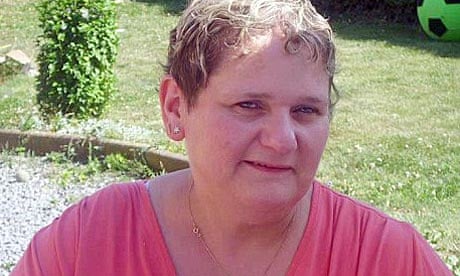A French nursing assistant and mother of two has confessed to killing eight of her newborn babies, placing their bodies in hermetically sealed plastic bags and hiding them from her family over a 17-year period.
Investigators into what appears to be France's biggest infanticide case said Dominique Cottrez, from the north-eastern village of Villers-au-Tertre, had admitted deliberately suffocating the infants immediately after giving birth to them on her own.
She was charged today with murder. The 46-year-old faces life in prison for the killings, which are understood to have taken place between 1989 and 2006.
According to Eric Vaillant, prosecutor of the nearby city of Douai, Cottrez confessed "quickly" during questioning after the new owners of her late parents' home stumbled across the bones of two infants while digging in the garden on Saturday. She had, he said, then directed investigators to the remaining six corpses, found in the garage of the house she shared with her husband, Pierre-Marie Cottrez.
He was today freed as an "assisted witness" in the case despite efforts to have him charged for concealment of bodies and failing to report a crime.
Throughout her testimony to police, his wife maintained he was unaware not only of the killings but also of the pregnancies. "Mrs Cottrez told investigators he had known neither that his wife was pregnant nor that she had got rid of them directly afterwards," said Vaillant.
Dominique Cottrez appeared to have been fully conscious of what she was doing. According to her initial statement to police, "she was perfectly aware of all her pregnancies", said Vaillant.
If the psychological tests support this, it would seem unlikely that she had pregnancy denial, a condition in which the sufferer is unable to process the fact that she is expecting. Experts will now endeavour to determine her "degree of responsibility" for the killings, said Vaillant.
The findings in the two houses located about a mile apart have bestowed upon Villers-au-Tertre a sudden and unwanted notoriety. Before, residents joked that they lived in "a village of the dead" where little noteworthy ever happened.
Now local people are asking how could no one have noticed Cottrez's frequent pregnancies? And if they did know, why did keep their observations to themselves? Above all, if it is proved that Cottrez did what she says she did, then why?
Those who are keen for answers are her daughters Virginie and Emeline Cottrez, who tonight broke their silence, defending their mother and insisting they had no idea about the suspected infanticides. "We never noticed a thing. Yes, she had moments of tiredness but between her work as a nursing assistant and the housework she worked almost 24 hours a day," the women, 21 and 22 respectively, told the French newspapers La Voix du Nord.
"She never judged us; she accompanied us, supported us," they added, recounting how their mother had been at Emeline Cottrez's bedside when her first grandson was born. "It was she who held him, dressed him … We both had tears in our eyes," said the eldest daughter.
Their mother had told police that previous traumatic childbirth experiences had put her off having any more children but that she "did not want to see a doctor to get contraception", said Vaillant.
As for why nobody else noticed the pregnancies, Patrick Mercier, the local mayor, said that although Cottrez had always been "pleasant" she was "rather introverted and was seen out a lot less than [her husband] in the community".
Her figure was also a factor, said police, claiming that it was easier for someone "of a heavy build" to hide a swollen belly than a slighter person. But officers nonetheless expressed bewilderment that Cottrez's daughters, to whom, said locals, she has been "a very good mother", her husband and her employers, a Douai-based home help agency, had noticed anything.
"I am just overwhelmed and I'm finding it impossible to understand," said a villager, who did not want to be named, adding: "Pierre-Marie … is a mate of mine. We used to have a drink, talk about work … He is very generous. He wears his heart on his sleeve."
Since Thursday, when news of the bodies sparked a media invasion from all corners of Europe, a spirit of solidarity has descended on the community. A belated Bastille Day celebration which had been planned for Saturday has been called off. "We will not celebrate without our friends," said Mercier.
But it could be a long time before Cottrez comes home. A police spokesman said investigators were not expecting to find any more bodies. "But there is still a lot of work to do," he added.
